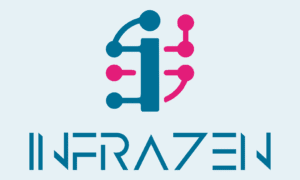
The future of accountancy is being redefined by the advent of blockchain technology. Blockchain, a type of distributed ledger technology, is positioning itself as a game-changer in the world of accounting. This article explores the potential impact of blockchain on the future of accountancy and how it can enhance the roles of accountants and auditors.
1. Understanding Blockchain: An Overview
Blockchain, also known as distributed ledger technology, is essentially a decentralised and immutable ledger of transactions. This ledger is maintained by a network of computers, also known as nodes, that validate and record transactions.
Blockchain technology has the following key characteristics:
- Distributed/Decentralised: The ledger is stored across a network of computers, ensuring no central point of failure.
- Immutable: Once recorded, the data in a block can’t be altered, providing a secure and verifiable history of transactions.
- Transparent yet secure: All transactions are visible to every participant in the network, ensuring transparency. However, through the use of cryptographic techniques, only specific parties can access certain data.
- Peer-to-peer: Transactions can be processed without a third party, creating a trustless environment where transactions are directly between two parties.
These characteristics are instrumental in revolutionising how we record, store and access data, with implications spanning multiple industries, including accountancy.
2. Blockchain and Accountancy: A Perfect Match
Accounting is fundamentally about recording financial transactions and maintaining accurate financial records. This is precisely what blockchain technology does, making it a natural fit for the accounting profession. Blockchain can offer clarity over the ownership of assets, the existence of obligations and can dramatically increase efficiency.
By utilising blockchain, accountants can gain real-time insights into their organisation’s available resources and obligations while also freeing up resources to focus on strategic planning and valuation. This marks a significant shift in the traditional functions of the accounting role, paving the way for the future of accountancy.
3. The Impact of Blockchain on Accounting Functions
3.1 Double-Entry to Triple-Entry Accounting
Traditionally, accountants use a double-entry system, where every financial transaction has equal and opposite effects in at least two different accounts. Blockchain could enhance this system by adding a third entry to a blockchain ledger, providing an immutable and transparent record of all transactions.
This ‘triple-entry’ accounting system could revolutionise accounting by automating transactions, reducing errors, and enhancing the trust and security of financial transactions.
3.2 Real-Time Automated Auditing
Blockchain could also transform the auditing process. As blockchain records are transparent and immutable, auditors can easily verify the authenticity and accuracy of transactions recorded on the blockchain. This capability could enable real-time auditing, dramatically reducing the time and cost associated with traditional audit processes.
3.3 Enhanced Transparency and Fraud Prevention
The transparency of blockchain could increase trust among stakeholders, as all transactions are visible and cannot be altered once recorded. Moreover, the use of cryptographic techniques ensures that only authorised parties can access specific data, thereby reducing the risk of fraud.
4. Blockchain Adoption in the Accounting Industry
The adoption of blockchain in the accounting industry is accelerating, with major players leading the way. For instance, prominent brands like Hubspot and Wordstream have already integrated blockchain into their operations. As blockchain infrastructure and applications continue to evolve, smaller accounting firms can also leverage this technology to enhance their operations and efficiency.
5. The Role of Accountants in a Blockchain-Driven Future
While blockchain brings automation and efficiency to accounting processes, it does not render accountants obsolete. Instead, it reshapes their roles, shifting their focus from record-keeping to providing strategic advice and insights.
In a blockchain-driven future, accountants could become key advisers to businesses, guiding them on the implementation of blockchain and helping them navigate the new system’s costs and benefits.
6. The Impact of Blockchain on Auditing
Blockchain could profoundly change the auditing process. If transactions that underlie a company’s financial status are visible on blockchains, performing confirmations of a company’s financial status would be less necessary. This could free up auditors to focus on higher-level questions and considerations.
7. Blockchain and the Regulatory Landscape
The implementation of blockchain also has implications for regulatory standards in accountancy. Leading accountancy firms and bodies can use their expertise to shape the development of regulations and standards covering blockchain, ensuring that they are fit for purpose and meet the industry’s needs.
8. The Skills Needed for a Blockchain-Driven Future
The integration of blockchain into accountancy will require new skills. As blockchain and other technologies like machine learning automate transactional-level accounting, successful accountants will need to focus on interpreting blockchain records and providing strategic advice.
9. Challenges and Limitations of Blockchain in Accountancy
Despite its many benefits, blockchain also presents challenges for the accounting industry. These include the need for standardisation and optimisation, the slow pace of blockchain’s development, and the need to ensure that blockchain applications are beyond the proof-of-concept or pilot study stage.
10. Conclusion: Embracing the Future of Accountancy
Blockchain technology is set to transform the future of accountancy in profound ways. By providing a secure, transparent and efficient way to record and verify transactions, blockchain can enhance the role of accountants and auditors, increase trust among stakeholders and bring unprecedented levels of efficiency to the accounting process.
As the future of accountancy unfolds, it is essential for accounting professionals to stay abreast of these developments and embrace the opportunities that blockchain offers. By doing so, they can ensure that they remain at the cutting edge of their profession and continue to deliver value to their clients in an increasingly digital world.
In the words of Rich de Moll, Vice President of the Blockchain Solutions for Finance at IBM, “Blockchain allows big data to be reliable and immutable, so we know that all of the data in a particular stack are in fact correct and verifiable.” This quote encapsulates the transformative potential of blockchain for the accounting industry – a future of accountancy where data is not just big, but also trustworthy and verifiable.

